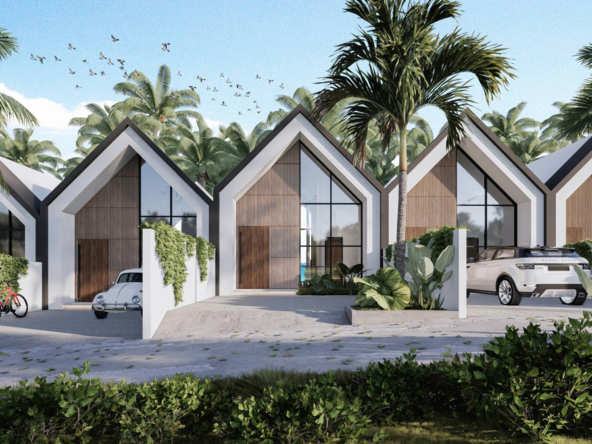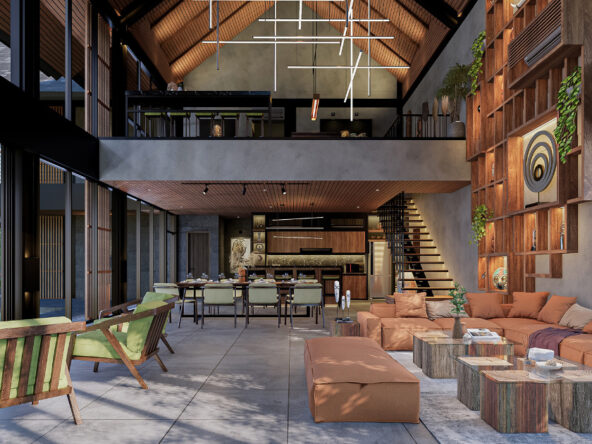When deciding between purchasing or constructing a villa in Bali, there are several factors to consider beyond just the initial costs.
If you’re leaning towards either option, it’s crucial to take into account the location, zoning laws, and local regulations. Additionally, understanding the essential legal steps before proceeding with buying or building your dream villa is imperative. But if you find all of this overwhelming, don’t worry—this article will guide you through both options, outlining their advantages and disadvantages and providing insights to help you kickstart your investment journey.
Buying a Villa
Pros:
- Convenience and Immediate Use or Rental Potential: Purchasing an existing property offers convenience and immediate use or rental potential. It is generally faster and less stressful than building from scratch, making it suitable for those seeking immediate access or considering rental investments for immediate returns. However, it’s essential to obtain a Pondok Wisata permit from the property owner if you plan on Airbnb rentals or other rental arrangements.
- Known Quantities: Existing properties come with fewer surprises regarding locations, neighborhoods, and room configurations. You can also consider minor renovations to increase the property’s value, but this depends on your agreement with the property owner and the property type.
- Established Legal Rights: Buying a ready-made villa means it already complies with local rules, reducing legal risks, especially when purchasing through a reputable real estate agent who ensures compliance with local legal requirements.
Cons:
- Higher Costs in Popular Areas: Properties in popular areas can be expensive, and you might have to compromise on certain aspects since the property wasn’t custom-built for you. Additionally, popular areas might be overcrowded, which could affect your ability to sell or rent out the property.
- Limited Decisions on Location: Existing villas are usually located in developed or popular areas, making it challenging to find properties in more secluded locations if you prefer quieter surroundings.
- Potential for Maintenance and Upgrades: Older properties may require more maintenance or upgrades to align with modern standards or personal preferences, potentially increasing your expenses.
Steps to Buying a Villa in Bali:
Research and Planning:
Begin with thorough research and planning, understanding current real estate trends and setting a clear budget that includes additional expenses like taxes, legal fees, and potential renovation costs.
Legal Considerations:
Understand property ownership laws and consider hiring a reputable local lawyer to navigate legal complexities and protect your interests.
Property Selection:
Identify properties that meet your criteria regarding location, size, amenities, and budget, and visit them in person to evaluate their condition and surrounding neighborhood.
Negotiation and Purchase:
Make an offer and negotiate the terms of your agreement, ensuring thorough due diligence to verify the property’s legal status.
Post-Purchase Activities:
Personalize the property through renovations or furnishing and consider hiring a property management company if you plan on renting out the property.
Building a Villa
Pros:
Customization: Building a villa allows you to tailor the design and layout to your specific preferences.
Cost-Effectiveness: Building from scratch can be more cost-effective, especially if you’re hands-on with the budget and construction process.
Location Freedom: You can choose your preferred location, whether it’s away from crowded areas or closer to serene landscapes.
Modern Constructions: New constructions enable you to incorporate modern amenities and sustainable technologies.
Cons:
Time and Effort: Building a villa requires significant time and effort, as you must oversee the construction process and be prepared for potential delays.
Legal Complexities: Navigating local building regulations and laws can be complex, especially for foreign investors.
Potential Cost Overruns: There’s a risk of unforeseen expenses, which can stretch your budget beyond initial estimates.
Steps to Building a Villa in Bali:
- Location: Study the location, including zoning laws, building regulations, and nearby areas.
- Acquire Land: Perform due diligence to ensure the land is dispute-free and suitable for building.
- Design and Permits: Engage a reputable builder or architect to design the villa and obtain all necessary building permits.
- Construction: Oversee the construction process and manage your budget carefully to avoid unexpected cost overruns.
- Finalizing the Project: Conduct a thorough inspection once construction is complete and ensure compliance with all local regulations.
Key Differences Between Buying and Building:
Time and Effort: Building a villa is more time-consuming and intensive than buying an existing property.
Customization: Building allows for more customization, while buying provides a more explicit upfront cost.
Cost: Building can be more cost-effective but also poses the risk of unforeseen expenses.
Legal and Bureaucratic Process: Acquiring land and obtaining building permits add additional layers of complexity to building compared to buying.
Risk: Building carries different risks, including construction delays and potential contractor issues.
In conclusion, whether you choose to buy or build in Bali depends on your preferences and needs. Both options require careful research, understanding of legalities, and collaboration with reliable professionals to navigate the process successfully.



